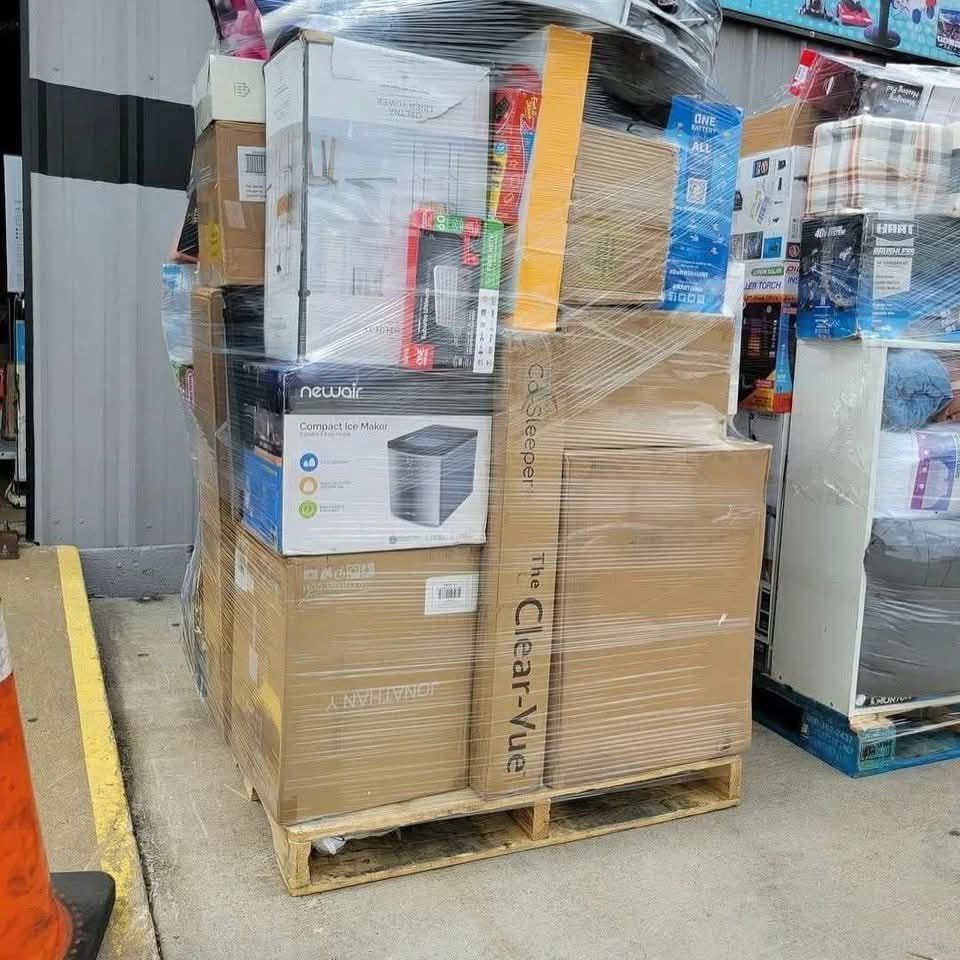Are you interested in turning surplus stock into profit? More people than ever are searching for how to start home goods reselling UK wide, and for good reason — the market for affordable, stylish household products is booming. Whether you’re looking for a side hustle or planning to scale into a full-time business, selling home goods from liquidation pallets is a smart way to get started with minimal upfront costs.
In this guide, we’ll walk you through exactly how to launch a successful home goods reselling business in the UK — step by step.
Why Home Goods Reselling Is Growing in the UK
From kitchen gadgets to modern decor, home goods remain one of the most popular and profitable categories for online resellers. Why?
Consistent Demand: Everyone needs home essentials — especially as trends change and people refresh their spaces.
Affordable Stock: Liquidation pallets give you access to quality surplus and returned stock at a fraction of retail prices.
Flexible Selling: You can sell from home, at markets, on eBay, Amazon, or Facebook Marketplace — without a brick-and-mortar shop.
Step 1: Research the Market
Before you buy your first pallet, it’s vital to understand what sells. Spend time browsing online marketplaces like eBay and Facebook Marketplace. Look for:
- Popular items in home goods (e.g. small appliances, decor, storage solutions)
- Seasonal trends (e.g. outdoor goods in summer, holiday decor in winter)
- What your competitors are charging
Knowing your niche will help you make smart buying decisions and avoid stock that sits unsold.
Step 2: Find a Reliable Wholesale Supplier
One of the most important steps when you start home goods reselling UK wide is choosing the right supplier. Companies like Bright Pallet Liquidation specialise in genuine surplus, overstock, and customer return pallets from trusted UK retailers.
What to look for in a supplier:
Clear pallet manifests (so you know what you’re buying)
Fair, transparent pricing
Good reputation and positive reviews
Nationwide delivery or convenient collection options
Avoid “too good to be true” deals — quality matters if you want repeat buyers.
Step 3: Set Your Budget
Liquidation pallets can range from a few hundred pounds to a few thousand, depending on the contents and size. Start small if you’re new — buy one or two pallets to test the process.
Factor in:
- Cost of the pallet
- Delivery or collection fees
- Packaging materials (boxes, bubble wrap)
- Selling fees (eBay, Amazon, PayPal)
Step 4: Register Your Business
In the UK, you can start as a sole trader or register as a limited company if you plan to grow. It’s straightforward to register as a sole trader with HMRC — you’ll just need to keep clear records and file your taxes.
If you’re using a brand name (like Bright Home Finds), check that it’s unique and consider buying a matching domain for your online shop.
Step 5: Set Up Your Selling Channels
Most UK resellers start with:
- eBay: Huge audience, trusted platform
- Amazon: More competitive but great for new goods
- Facebook Marketplace: Free, local, no fees
- Car boot sales or markets: Good for moving mixed stock fast
Take clear photos, write honest descriptions, and include details like condition (new, like new, returns). Great listings mean quicker sales.
Step 6: Master Your Pricing
Competitive pricing is crucial to reselling success. Check sold listings for similar products on your chosen platform to see what buyers are actually paying.
Remember, it’s better to turn stock over quickly than to hold out for the highest price — storage costs money and slow turnover eats profit.
Step 7: Ship Safely & Build Trust
Pack your items carefully to avoid damage in transit. Provide tracking where possible and keep buyers updated. Good communication means good reviews — and good reviews mean more sales.
Step 8: Grow & Reinvest
Once you sell your first pallet, reinvest your profits to buy more. You’ll learn what sells best and build repeat buyers over time.
As you grow, consider:
- Creating a small website for direct sales
- Running ads on social media
- Expanding to bulk sales for other small shops
Tips for First-Time UK Home Goods Resellers
Start small, learn fast.
Keep detailed records of your costs and profits.
Be honest about item conditions — trust matters.
Build relationships with your supplier for better deals.
Stay up to date with trends — modern home goods evolve fast!






https://shorturl.fm/IegeZ
https://shorturl.fm/eXTp4
https://shorturl.fm/FO8hf
https://shorturl.fm/5z524
https://shorturl.fm/DPlKf
https://shorturl.fm/Uwsn8
https://shorturl.fm/uctSG
https://shorturl.fm/c02Mn